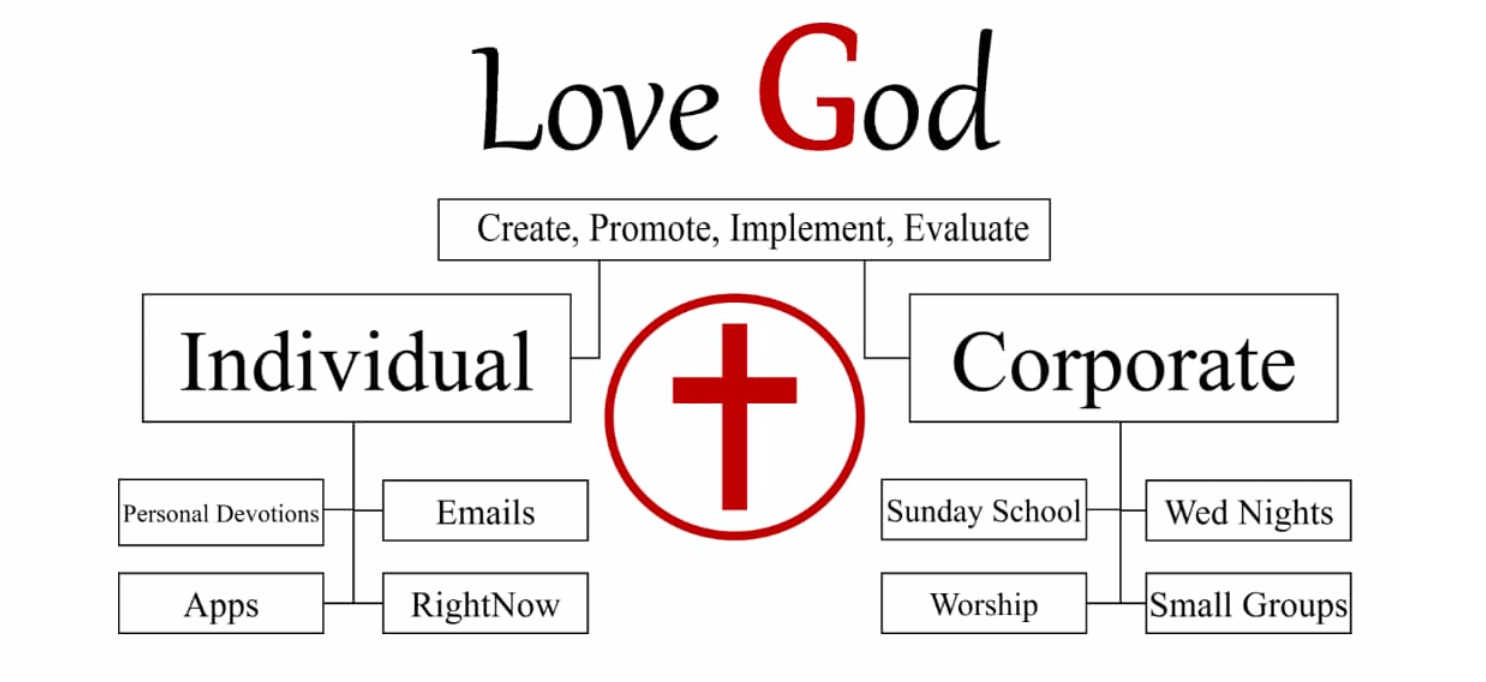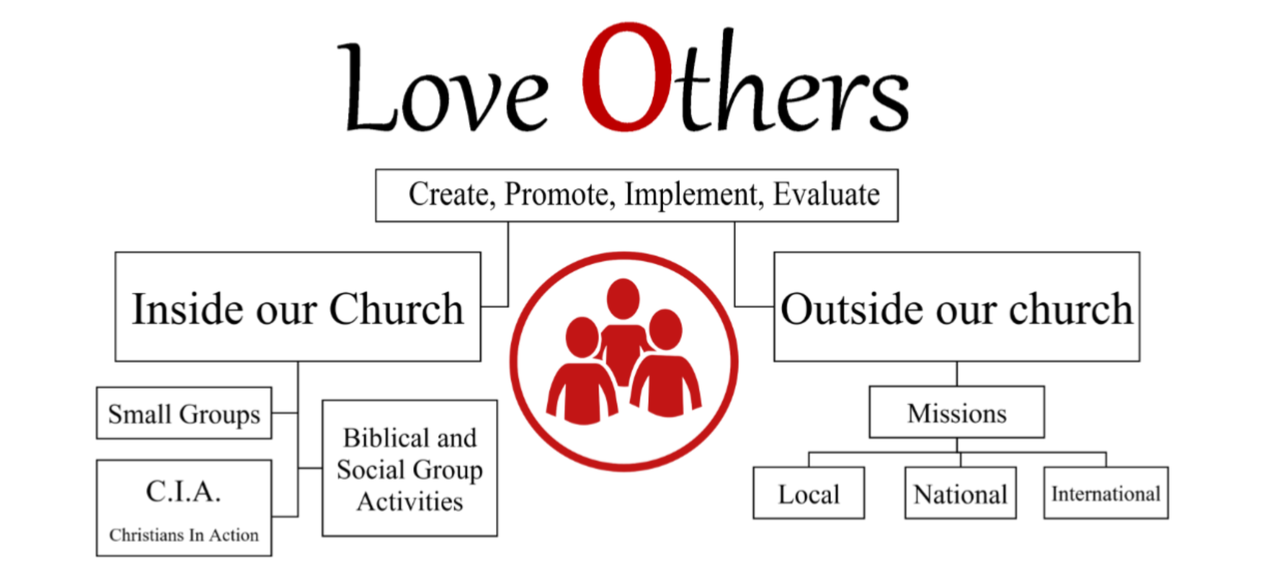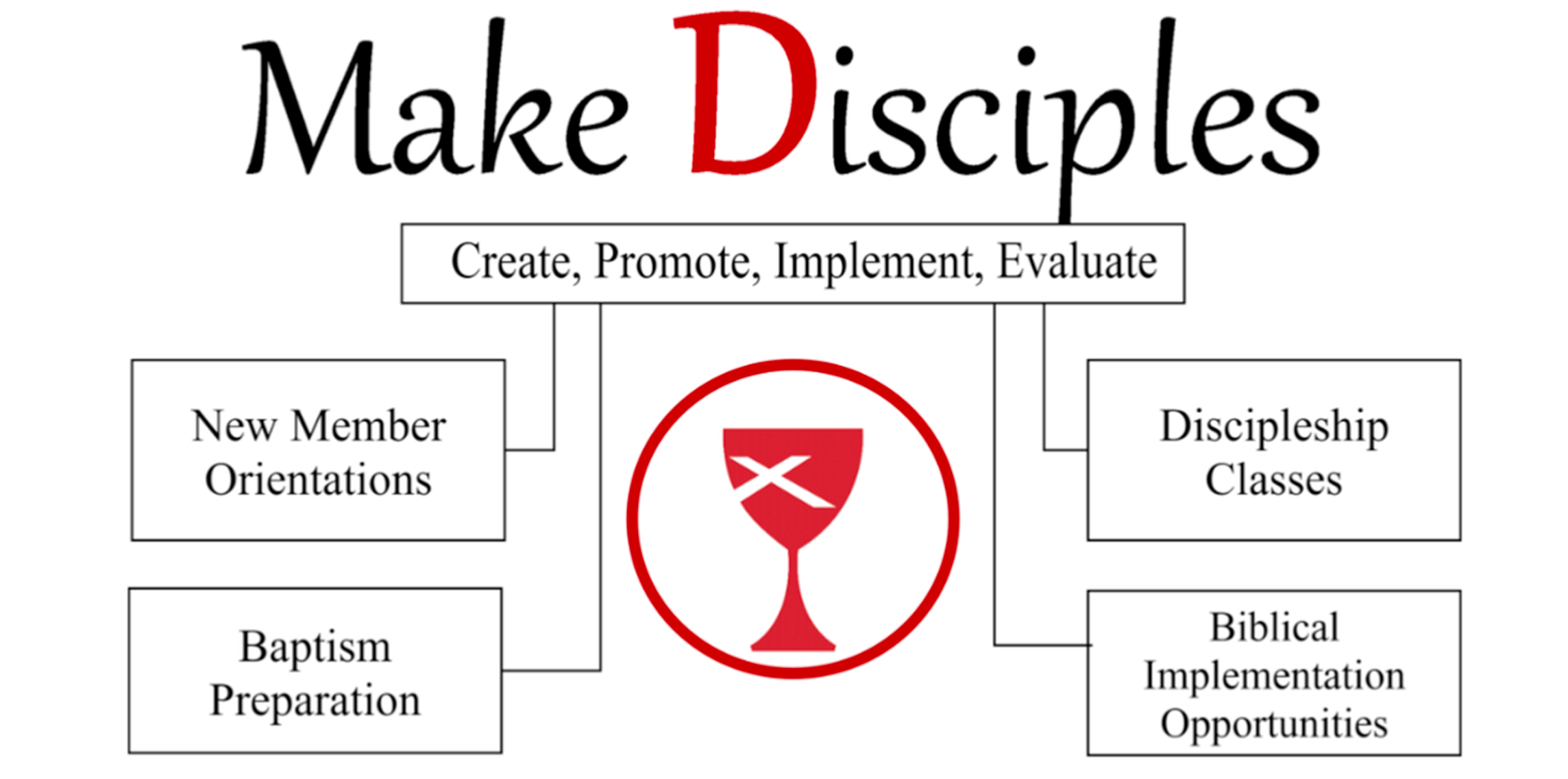Mission and Vision
Love God. Love others. Make disciples.
Mission & Vision
Love God. Love others. Make disciples.
We choose to love God wholeheartedly.
What does loving God really mean? According to the Bible, loving God means totally surrendering ourselves to Him “with all our heart and with all our soul and with all our mind.” – (Matt. 22:37) How do we do that? First, it requires knowing Him, and that knowledge begins with His word.
In His Word, we learn to worship and praise Him. In the gospel of Luke (4:8) we are told to “worship the Lord our God”. The Bible is filled with a rich tradition of those who have worshipped God in word and in song. Our worship service is designed to give God all the praise and glory that God deserves. We call upon the Holy Spirit each week to guide and direct our worship to praise the God that loves us beyond our imagining.
In His Word, we learn to put Him first. God is our priority. If we truly love God with “all our heart, soul, mind and strength” we won’t allow other things to crowd in. We want to strive to look at the world through “God First” glasses. When God is the priority everything we do comes from that perspective.
In His Word, we learn to love God and desire Him, to yearn for His righteousness, His Word, and His Grace. Psalm 34:8 says, “Taste and see that the LORD is good; blessed is the one who takes refuge in him.” If we truly love God and dive into his word, His will begins to resonate within us.
Finally, in His Word, we learn to love God and obey Him. John 14:15 says, “If you love me, you will obey what I command.” This not just about doing good deeds, it is about having God’s love written on our hearts. When we love God, we will want to please Him and obey His commands eagerly.

We choose to love others.
We chose to love others as we love ourselves with the steadfast love that God has poured into our hearts. Matthew 22:37-39 reads Jesus replied: ‘Love the Lord your God with all your heart and with all your soul and with all your mind.’ This is the first and greatest commandment. And the second is like it: ‘Love your neighbor as yourself.’ We choose to love people through scriptural acts of service, compassion, and kindness… considering others better than ourselves.

Making disciples for Christ.
A Disciple is a committed follower of Jesus Christ. A Disciple has come to Jesus Christ for salvation from sin, has claimed Jesus as Savior and Lord, and has embarked upon a life of following Jesus in every area of life.
John 13:34-35 says, “A new commandment I give to you, that you love one another: just as I have loved you, you also are to love one another. By this, all people will know that you are my disciples if you have love for one another.”
We choose to love God wholeheartedly.
What does loving God really mean? According to the Bible, loving God means totally surrendering ourselves to Him “with all our heart and with all our soul and with all our mind.” – (Matt. 22:37) How do we do that? First, it requires knowing Him, and that knowledge begins with His word.
In His Word, we learn to worship and praise Him. In the gospel of Luke (4:8) we are told to “worship the Lord our God”. The Bible is filled with a rich tradition of those who have worshipped God in word and in song. Our worship service is designed to give God all the praise and glory that God deserves. We call upon the Holy Spirit each week to guide and direct our worship to praise the God that loves us beyond our imagining.
In His Word, we learn to put Him first. God is our priority. If we truly love God with “all our heart, soul, mind and strength” we won’t allow other things to crowd in. We want to strive to look at the world through “God First” glasses. When God is the priority everything we do comes from that perspective.
In His Word, we learn to love God and desire Him, to yearn for His righteousness, His Word, and His Grace. Psalm 34:8 says, “Taste and see that the LORD is good; blessed is the one who takes refuge in him.” If we truly love God and dive into his word, His will begins to resonate within us.
Finally, in His Word, we learn to love God and obey Him. John 14:15 says, “If you love me, you will obey what I command.” This not just about doing good deeds, it is about having God’s love written on our hearts. When we love God, we will want to please Him and obey His commands eagerly.

We choose to love others.
We chose to love others as we love ourselves with the steadfast love that God has poured into our hearts. Matthew 22:37-39 reads Jesus replied: ‘Love the Lord your God with all your heart and with all your soul and with all your mind.’ This is the first and greatest commandment. And the second is like it: ‘Love your neighbor as yourself.’ We choose to love people through scriptural acts of service, compassion, and kindness… considering others better than ourselves.

Making disciples for Christ.
A Disciple is a committed follower of Jesus Christ. A Disciple has come to Jesus Christ for salvation from sin, has claimed Jesus as Savior and Lord, and has embarked upon a life of following Jesus in every area of life.
John 13:34-35 says, “A new commandment I give to you, that you love one another: just as I have loved you, you also are to love one another. By this, all people will know that you are my disciples if you have love for one another.”

Over the next 5 years…
- Create, grow, and strengthen a vibrant study of God’s Word (Bible study)
- Continually planning ongoing corporate Bible classes, providing at least two Bible study opportunities for each age group.
- Seek and promote individual daily Bible studies (devotionals, videos, apps, texts, etc.), ensuring that each church member has access to at least one method.
- Create, promote, implement, and evaluate.
Over the next 5 years…
- Create, grow, and strengthen a vibrant study of God’s Word (Bible study)
- Continually planning ongoing corporate Bible classes, providing at least two Bible study opportunities for each age group.
- Seek and promote individual daily Bible studies (devotionals, videos, apps, texts, etc.), ensuring that each church member has access to at least one method.
- Create, promote, implement, and evaluate.

